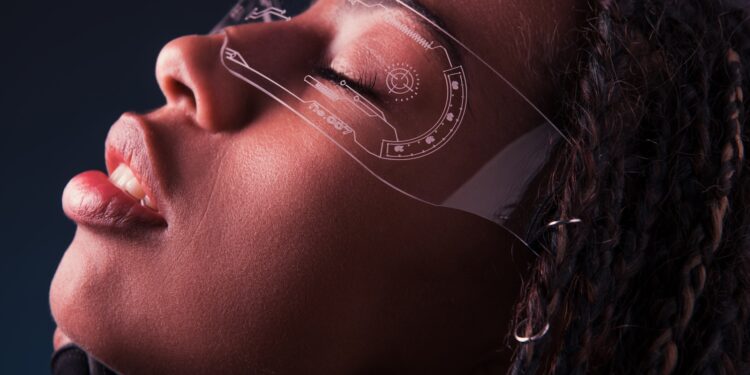Development of Apple Glasses is progressing faster than expected. New evidence points to a market launch in 2026. What's surprising is that Apple appears to be adopting a view previously held primarily by Mark Zuckerberg. According to the meta-CEO, glasses are considered an ideal interface for artificial intelligence. Now, there's every indication that Apple shares this view—and is adapting its product strategy accordingly.
Mark Zuckerberg has spoken clearly about the future of smart glasses several times in the past. He sees them as the perfect AI device: Glasses can see what's happening in the field of vision, hear what's being said, and communicate with the wearer – in real time, directly in everyday life. This enables a more natural and powerful interface between humans and machines than any smartphone or smartwatch. While Apple and Meta often take opposing paths on issues like data protection, platform architecture, or business models, an unexpected agreement emerges on this point. Apple also seems to view glasses as a key technology for AI – and is now aligning its own development accordingly.
Apple Glasses: From AR to AI
For a long time, Apple Glasses were considered a long-term augmented reality project—essentially a smaller, everyday version of the Apple Vision Pro. Rumors suggested that a release was still years away. The technology seemed unready, the product concept immature. There were occasional hints that Apple didn't even want to compete with glasses. Instead, it was expected that existing hardware—particularly the Apple Watch and AirPods—would be augmented with cameras to enable context-based AI functions. But this very plan was apparently abandoned.
Apple Glasses move to the center of AI strategy
Instead, a dedicated smart glasses project has now reportedly been given internal priority at Apple. According to current reports, the "Apple Glasses" project is being intensively pursued. The focus is not on augmented reality, but rather on artificial intelligence. The glasses will not offer an AR experience like the Vision Pro, but will focus entirely on AI functionality. This positions them very closely to the Ray-Ban Meta Smart Glasses – a product that Meta has already successfully launched on the market.
Zuckerberg: Glasses are the best AI carrier
At Meta's latest quarterly conference call, Mark Zuckerberg reiterated how central he believes smart glasses are to AI. In the published transcript, he said:
I still believe that glasses are essentially the ideal form for AI because you can enable an AI to see what you see, hear what you hear, and talk to you.
Zuckerberg compared wearing AI glasses to wearing a prescription eyeglass—he argued that those who don't wear AI-assisted glasses in the future could be at a cognitive disadvantage. He believes such glasses will become an essential component of modern work and living environments. He sees Meta's successes so far in the still-young smart glasses market as confirmation of this path—even if current market demand is still comparatively subdued.
Apple accelerates the schedule
Meanwhile, there are many indications that Apple shares precisely this reasoning. Its initial reluctance seems to have given way. Instead of considering alternative ways to integrate AI, it is now pushing ahead with its own glasses development at full speed. The decision to bring the project to market faster than expected is an indication of the product's strategic importance. Apple Glasses are now scheduled to be released before the end of 2026. For Apple, this is an unusually short development period for a completely new product category.
Apple draws conclusions from Siri's lag
The abrupt shift in hardware strategy—away from camera wearables and toward smart glasses—demonstrates how dramatically the company's view of AI has shifted. Against the backdrop of the current debate surrounding Siri's weaknesses and Apple's lag in the AI field, the new glasses project takes on even greater significance. Apple cannot afford to fall behind again with its next technological platform—especially since competitors like Meta and Google already have concrete products in the pipeline or on the market.
Common goal, different paths
Despite all the differences between Apple and Meta, one thing is clear: Both companies see smart glasses as a central device for interacting with AI. While Meta is relying on early market presence and partnerships like with Ray-Ban, Apple is working in secret on a solution that, as usual, is likely to be fully integrated into its own ecosystem. Whether Apple Glasses will actually offer the same functions as Meta's smart glasses—such as camera use, voice control, and everyday assistance—is not yet clear. However, the focus on AI instead of AR shows that Apple is willing to break new ground. And that it apparently no longer wants to leave the idea of a glasses-based AI assistant to Meta alone.
Apple Glasses as a turning point for intelligent wearables
Apple Glasses represent a shift in strategy at Apple – away from long-term AR visions and toward a tangible, AI-based product. The surprising alignment with Mark Zuckerberg's assessment underscores how important AI-enabled glasses are considered for the future of digital interaction. If all goes according to plan, Apple Glasses will launch as early as 2026, potentially setting a new standard for smart wearables. The best products for you: Our Amazon Storefront offers a wide selection of accessories, including those for HomeKit. (Image: Shutterstock / LightField Studios)
- Apple Vision aims to be lighter and more affordable
- Apple Vision Pro 2 is expected to be more powerful and comfortable
- Apple Vision: All devices and plans up to 2028 at a glance
- Apple boosts smart glasses with AI power
- Apple 2026: Three major product upgrades are coming
- OpenAI wants to complement smartphones with new AI device
- Apple Vision Pro successor: All known information now
- Apple Smart Glasses: Facts, Features, Timeline





